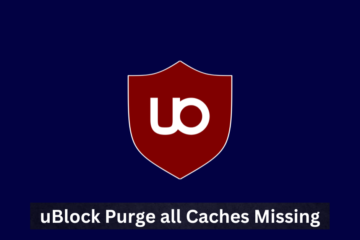The internet is a vast and unpredictable space where words can suddenly appear and gain traction without any clear explanation. One such mysterious word that has captured attention is Zupfadtazak. It has become a digital enigma, spreading across blogs, content networks, and social media platforms, sparking curiosity about its meaning, origin, and cultural relevance. While many internet neologisms come and go, Zupfadtazak has stood out because of its strange sound, intriguing possibilities, and the way it has been used in different contexts. Understanding Zupfadtazak requires looking at its definition, origin, and evolving role in internet culture.
What separates Zupfadtazak from other invented terms is its ability to spark conversation. Unlike ordinary words, Zupfadtazak carries no fixed dictionary definition, yet people interpret it in various creative ways. Some see it as an example of AI-generated words, while others consider it a viral lexicon or a content farm buzzword created to test SEO strategies. Regardless of the interpretation, the uniqueness of Zupfadtazak lies in its flexibility and adaptability, making it a prime example of how a made-up word origin can shape online discussions.
One reason Zupfadtazak is trending is because of its mystery. People on Reddit threads have debated whether it is real or fake, and content platforms such as Four Magazine and Blog Buz have featured it in articles, adding to the buzz. On social media platforms like Twitter/X, Instagram, and TikTok, creators have used Zupfadtazak in memes, captions, and videos, pushing it further into the spotlight. The curiosity factor has made it a classic case of digital folklore, where an unknown word becomes a cultural artifact through widespread sharing.
What is Zupfadtazak?
The Zupfadtazak meaning is not straightforward because it does not come from traditional linguistic roots. Most experts agree that Zupfadtazak is best understood as an internet neologism—a word invented within digital spaces without prior usage in books, history, or spoken language.
Definitions and Interpretations
Some interpret Zupfadtazak as a metaphor for the randomness of internet culture. Others use it as an example of memetic language, where the sound and structure of the word itself carry more value than its meaning. In SEO communities, it is often described as a keyword experiment, allowing marketers to test how a completely new word can perform in search rankings. This makes Zupfadtazak definition fluid, evolving with each new use.
Common Misconceptions about Zupfadtazak
A major misconception is that Zupfadtazak is tied to a hidden product or secret community. In reality, no evidence suggests that it represents a brand, technology, or organization. Another misconception is that Zupfadtazak has dangerous or mystical properties, but such claims fall under nocebo/placebo interpretations, where people project meaning onto something that is fundamentally abstract.
The Origins of Zupfadtazak
Tracing the Zupfadtazak origin is difficult because it first appeared scattered across content farms and blog networks. Websites like Four Magazine, Blog Buz, and SolutionHow began referencing it in different contexts, often in SEO-heavy articles that lacked a clear explanation.
First Appearances on the Internet
The earliest mentions of Zupfadtazak seem to have come from blog networks that specialize in trending or fabricated terms. From there, the word migrated to Reddit discussions, where curious users debated its purpose. This pattern is common in digital folklore, where a word’s journey often begins with experimental content creation before spreading through user discussions.
Theories About Its Creation (AI, SEO, Memes)
Several theories exist about how Zupfadtazak was created. One theory suggests it was coined by AI or generative language models as part of experimental content. Another theory is that marketers invented it as part of an SEO keyword experiment to dominate search results for a term with no competition. Finally, some argue it emerged naturally as a meme culture invention, created for fun and later popularized.
Zupfadtazak in Internet Culture
Like many internet phenomena, Zupfadtazak gained traction through community-driven sharing.
How Reddit, Twitter/X, and TikTok Use the Term
On Reddit, people ask questions like “is Zupfadtazak real or fake?” and explore its strange sound. On Twitter/X, creators post jokes and memes, while on TikTok and Instagram, it often appears as a trending hashtag in short videos or captions. This variety of usage shows that Zupfadtazak is not bound to one meaning but rather thrives as an open-ended meme.
Memes, Jokes, and Viral Patterns
The rise of Zupfadtazak memes demonstrates how humor drives online culture. Just like other viral lexicons, Zupfadtazak spreads because people enjoy its strangeness. It has become a kind of linguistic play online, where the act of saying or typing the word is itself the joke.
Role of Content Farms and Blogs in Spreading It
Content networks like Four Magazine and SolutionHow have played a major role in spreading Zupfadtazak. By writing about it in SEO-focused articles, they ensured the word reached search engines and curious readers. This cycle illustrates how content farm buzzwords become popular: through repetition and curiosity-driven clicks.
Zupfadtazak as a Linguistic Curiosity
Neologisms and Coined Words
Linguists classify Zupfadtazak as a neologism—a newly coined word or expression. Like other invented words, its significance lies in how communities adopt and use it rather than in its etymology.
How Words Like Zupfadtazak Fit into Language Evolution
The internet has accelerated the creation of new words. Zupfadtazak is part of this ongoing evolution where digital communication continuously shapes vocabulary. It shows how memetic language can cross from playful invention to cultural phenomenon.
Comparisons with Other Viral Terms
Zupfadtazak can be compared with other internet-coined words that gained traction, such as “yeet” or “doge.” Like them, Zupfadtazak may not have a dictionary meaning but thrives because of its viral marketing term potential.
SEO and Marketing Angle of Zupfadtazak
Why Marketers Experiment with Unusual Words
Marketers often use strange words like Zupfadtazak to test keyword stuffing or to dominate low-competition keyword strategy searches. By doing so, they can measure how new words gain authority in search results.
Case Study: Zupfadtazak as a Low-Competition Keyword
Platforms such as SolutionHow have used Zupfadtazak in SEO articles to capture attention. This Zupfadtazak SEO experiment case study reveals how even meaningless terms can rank if optimized properly.
Risks and Rewards of Keyword Experiments
The reward is traffic, but the risk is confusion. If overused, Zupfadtazak might lose credibility as a viral marketing term. Yet when used responsibly, it can highlight how digital language experiments evolve.
The Metaphysical and Symbolic Interpretations
Blogs Claiming Zupfadtazak Has “Hidden Powers”
Some blogs frame Zupfadtazak as a mystical concept, claiming it has secret energy or symbolic significance. While entertaining, these interpretations lack factual basis.
Analyzing Fact vs Fiction
Fact-checking shows that Zupfadtazak is not tied to any spiritual or scientific tradition. Such claims fall into placebo/nocebo effects, where people project power onto abstract terms.
Why People Attach Meaning to Invented Terms
Human psychology tends to seek meaning in randomness. This is why invented words like Zupfadtazak become vessels for symbolic or cultural narratives.
Is Zupfadtazak Real or Fake?
Fact-Checking Digital Myths
Zupfadtazak is real in the sense that it exists as a word used online, but it is fake in the sense that it does not represent an established object, product, or idea.
The Psychology of Believing in Online Oddities
People often believe in words like Zupfadtazak because of their mystery. Curiosity fuels sharing, and the uncertainty strengthens its viral spread.
Practical Uses of Zupfadtazak
How Writers, Creators, and Meme-Makers Use It
Writers use Zupfadtazak to illustrate the unpredictability of internet neologisms. Creators adopt it in memes and digital art to add humor and mystery.
Ideas for Creative Wordplay and Branding
Because of its uniqueness, Zupfadtazak can be used in branding, storytelling, or even as a fictional character name. It represents the power of linguistic play online.
Responsible Ways to Reference Zupfadtazak
While playful, it should be referenced responsibly to avoid misleading readers. Treating Zupfadtazak as a case study in digital culture builds trust with audiences.
Future of Zupfadtazak in Digital Culture
Will It Fade or Evolve?
Like many memes, Zupfadtazak may fade, but its digital footprint will remain in archives, SEO blogs, and memes.
Could It Inspire New SEO and Linguistic Trends?
The Zupfadtazak experiment may inspire marketers and linguists to explore how AI-generated words and SEO experiments shape future online language.
Conclusion
The journey of zupfadtazak highlights internet culture, digital folklore, and curiosity, fueling SEO experiments, memes, debates, and creativity. While it may have no dictionary meaning, Zupfadtazak embodies the unpredictable beauty of language in the digital age. For content creators, marketers, and curious readers, it stands as proof that even the most unusual words can inspire engagement and shape online narratives.
Frequently Asked Questions
What does Zupfadtazak mean?
It means different things to different people, but most agree it is a coined internet word with no fixed definition.
Where did Zupfadtazak come from?
It first appeared on content farms and blog sites before spreading to Reddit and social media.
Is Zupfadtazak dangerous?
No, Zupfadtazak is harmless. Claims of danger are unfounded.
How do I use Zupfadtazak in content?
You can use it in creative writing, memes, or SEO discussions as an example of an invented word.
Is Zupfadtazak part of a marketing trick?
Yes, in some cases, it has been used as part of SEO experiments to test how unique words perform online.
Stay in touch to get more updates & alerts on TGTube! Thank you



